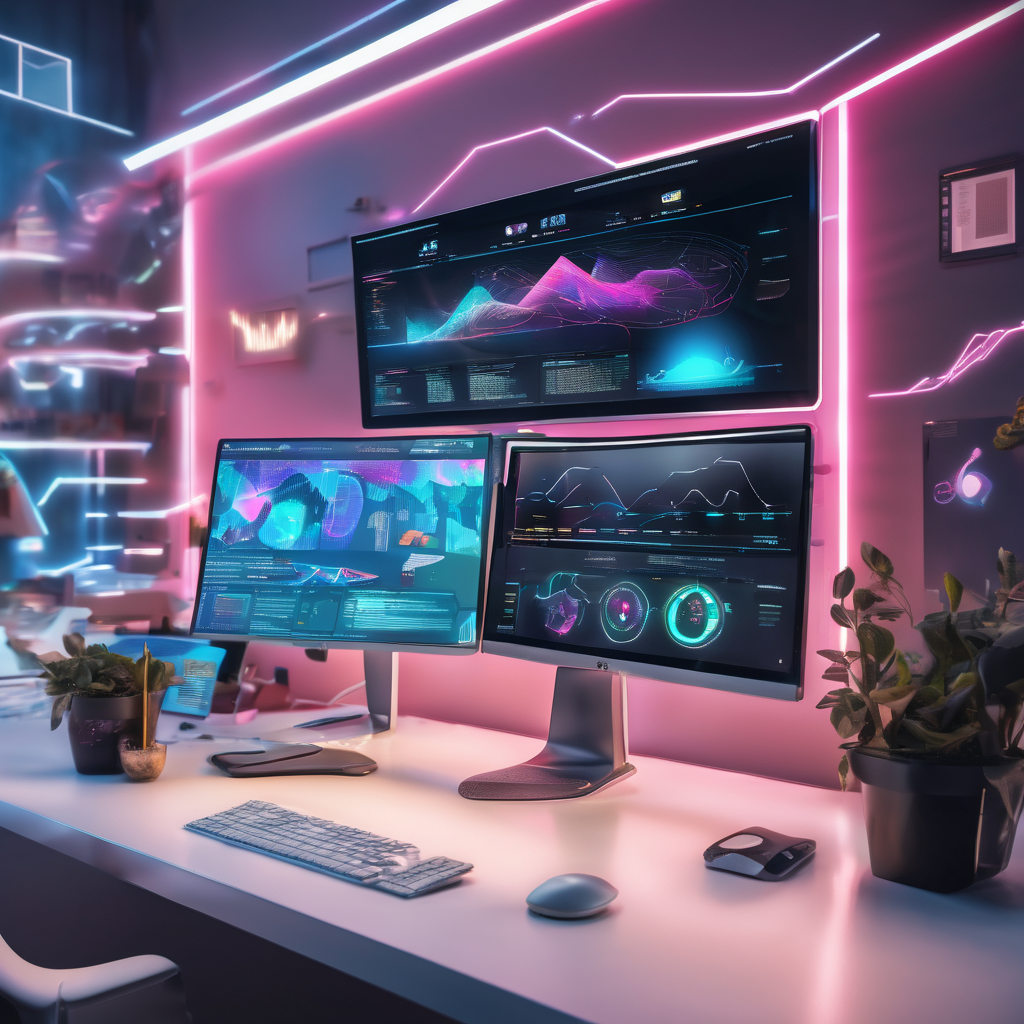
Developers and enterprises worldwide are in a race to capitalize on industrial digitalization opportunities, ranging from smart factories to next-generation railway systems. To achieve this, they are leveraging the open-source Universal Scene Description (USD) framework, also known as OpenUSD, along with metaverse applications powered by AI. Originally developed by Pixar for animation and visual effects in large-scale feature film pipelines, OpenUSD provides a robust engine for creating high-fidelity 3D worlds. With its extensive ecosystem, OpenUSD is well-suited for the era of AI and the metaverse. OpenUSD is gaining widespread adoption across various industries, including automotive, healthcare, and manufacturing. Its extensibility allows developers to integrate the latest AI tools and digital content-creation solutions into custom 3D workflows and applications. For instance, BMW Group's in-house developers are utilizing OpenUSD to build custom applications for optimizing and interacting with digital twin use cases. Startups like Move. ai, SmartCow, and ipolog are also leveraging OpenUSD to develop groundbreaking metaverse technologies. Additionally, leading 3D solution providers such as Esri, Bentley Systems, and Vectorworks are connecting their technologies with OpenUSD, enabling new capabilities in the metaverse. In the past, 3D content creation relied on linear and isolated workflows. However, to remain competitive, enterprises must now integrate their diverse and distributed teams and expand their offerings, particularly in generative AI. This requires fluid design collaboration and the ability for developers to work in open, modular, and extensible frameworks. Businesses that attempt to build new features and capabilities in closed environments are likely to fall behind as AI and metaverse innovation accelerates. The metaverse's 3D worlds, which are driving advancements in design, simulation, and AI, require a common framework that enables scalability and interconnection. OpenUSD is well-suited for diverse metaverse applications due to its ability to support a wide variety of properties for defining and rendering objects.
Beyond being a file format, OpenUSD serves as an interchange framework, connecting a robust ecosystem of creative and developer tools. Cesium, a platform for 3D geospatial workflows, utilizes USD to enable enterprises in construction, robotics, simulation, and climate change to build industrial metaverse applications. The interoperability of USD with 3D Tiles and glTF allows for additional workflows, such as importing content from Bentley LumenRT, Trimble Sketchup, Autodesk Revit, Autodesk 3ds Max, and Esri ArcGIS CityEngine into NVIDIA Omniverse with precise 3D geospatial context. OpenUSD seamlessly interconnects with various 3D tools, enabling users to work efficiently across different pipelines. Its efficient referencing and layering capabilities facilitate real-time non-destructive editing and preserve all source content, promoting iterative and collaborative workflows. Designed to handle large-scale scenes and complex datasets, OpenUSD serves as an ideal platform for developers building applications to support virtual worlds. NVIDIA Omniverse acts as the glue that connects diverse 3D tools and datasets with OpenUSD, unlocking new possibilities for large-scale virtual worlds and industrial digitalization applications. Omniverse is an open and highly modular platform designed by developers for developers. The Omniverse Code and Kit provide developers with the flexibility to build advanced and real-time simulation solutions for industrial digitalization and perception AI. All experience levels can leverage OpenUSD on Omniverse, with beginners having the ability to develop tools with minimal code using existing platform extensions. Experienced developers can build powerful apps and extensions from scratch using Python or C++, combining them with existing ones to create customized tools. Visual programming tools like OmniGraph simplify advanced procedural tasks, making it easy to set up warehouse simulations and fine-tune them to specific needs. To learn more about the capabilities of USD, NVIDIA will be hosting OpenUSD day at SIGGRAPH, a computer graphics conference, where they will present the latest developments in the framework. NVIDIA founder and CEO Jensen Huang will deliver a keynote address, and attendees will have the opportunity to experience the latest advancements in OpenUSD, graphics, rendering, and generative AI through various sessions and hands-on labs. To get started with NVIDIA Omniverse, users can download the standard license for free, or explore Omniverse Enterprise for team collaboration. A wealth of resources is available for developers interested in building on the platform, and staying updated is as simple as subscribing to the newsletter and following NVIDIA Omniverse on social media platforms. In summary, OpenUSD, powered by AI and integrated with metaverse applications, is transforming industries by enabling industrial digitalization at every scale. Its open and extensible nature, coupled with the interconnectedness facilitated by NVIDIA Omniverse, provides the foundation for scalable and collaborative virtual worlds.
None


An AI company has made a landmark advancement in last-mile delivery by beginning to deploy autonomous delivery drones in select urban areas, marking a major integration of artificial intelligence into everyday logistics and supply chain operations.

Dallas-based KISS PR has unveiled a detailed guide illustrating how artificial intelligence is reshaping SEO strategies in 2025, emphasizing the integration of strategic press release distribution to secure first-page Google rankings.

Dell reported its fiscal third-quarter earnings on Tuesday, revealing revenue that fell short of Wall Street’s expectations, but it projected a stronger-than-anticipated fourth quarter fueled by increased AI sales.

MarketOwl, a leading social media marketing management platform, has introduced an innovative feature exclusively for its AI SMM Manager subscribers that revolutionizes visual content creation.

Market intelligence is undergoing a fundamental transformation fueled by data science and AI, enabling companies to gain predictive advantages within their industries.

As remote work becomes a fundamental part of the modern workplace, the demand for advanced video conferencing tools has surged, with artificial intelligence (AI) playing a crucial role in enhancing these platforms.

The Accelerated Transition to AI-Enhanced Video Conferencing in Remote Work Settings The widespread move toward remote work has greatly increased reliance on video conferencing platforms, driving rapid innovation in integrating artificial intelligence (AI) to enhance virtual collaboration
Launch your AI-powered team to automate Marketing, Sales & Growth

and get clients on autopilot — from social media and search engines. No ads needed
Begin getting your first leads today